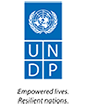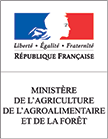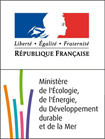How might we take advantage of the latest educational tools and technologies to better manage our water resources?
Solution pitched to dragons den:
Currently, there is a transition from the traditional education to the use of digital educational tools, aiming at a larger audience and diverse stakeholders. A number of these tools have already been developed and are being used in educational projects across the world, many of which are increasing awareness of people regarding the global issues that we face today. Despite this transition, there is still a lack of easy and accessible ways to properly measure the impact of these digital educational tools. How effective are they and how can these relate to the Sustainable Development Goals (SDGs)?
It is in this context that we propose to develop a unique and innovative platform (online hub) that integrates information about different existing digital tools and projects (with initial focus on water-management related projects). Also, this platform would correlate web-based parameters of users (e.g. gender, number of access to the online tools) to the sustainable development goals (e.g. education and water), starting with UNEP’s Aqua Republica online game. The additionality of this platform lies in three important pillars: 1) open-access, 2) transparency and 3) collaborative-editing. What we aim is to develop an Information Center that would provide real-time data about the impact of different digital educational tools that are being used worldwide and their progress in helping to achieve the SDGs.
In the Measuring Success Landscape Challenge, we are asking youth around the world to identify more innovative ways that educational tools can accelerate creative solutions to water use challenges.
Water. One of our most precious resources on which all life on earth depends. While you may think of the water you drink, did you know that 70% of global freshwater withdrawal is used for food production? Water is also heavily involved in energy systems; there’s been a global boom in construction of hydropower dams and energy is needed to pump water and increase the efficiency of pressurized systems (which incidentally can save water) as well as for cooling purposes. Last but not least, water is vital for all ecosystems, which provide us with many services.
As the world’s population grows, so too does our demand for water – we’re projected to outstrip supply by 40% within the next 15 years. Climate change is also having an increasingly large impact on water resources, with droughts increasing and rainfall patterns becoming more erratic. Up to 33 countries will face extremely high water stress in 2040.
Unfortunately the dwindling water situation has seen decision-makers securing water supplies without taking into account the significant impacts on the food-water-energy nexus. For example, the boom in hydropower dam construction and large scale irrigation projects often see less water available for food and the environment. As we grow more biofuels under irrigated agriculture, we’re also seeing negative impacts on food security at a local level.
This is already causing many global, regional and local conflicts between communities, companies and governments. It’s clear that we need to apply some creative and interconnected thinking when it comes to preserving water, food and energy security.
Educational tools have been developed help communities, companies and governments overcome conflict and develop shared vision to manage water resources collectively.
Aqua Republica is one such tool. Based on real life scenarios, it teaches participants how to sustainably manage a limited supply of water resources in a situation of growing demand between multiple users and uses.
While it has been successful in raising awareness, tools like Aqua Republica are only just scratching the surface of possibility. These educational tools have an enormous potential to connect water users and understand all uses of water at a broader watershed and global scale, but often fail to achieve specific outcomes through its use. Enriching these tools in order to facilitate common reflection and enable decision making is what we hope to achieve with this challenge.
So, how might we use educational tools, like Aqua Republica, on the ground to better manage water resources?
JOIN US IN PARIS TO TACKLE THIS CHALLENGE
Challenge mentors:
EMMANUEL NGORE is a Programme Associate at the Freshwater Ecosystems Unit in UNEP. Emmanuel has worked with the youth for over 6 years on matters concerning conservation of natural resources, sustainable agriculture, social inclusion, and Environmental Governance. He is also a member of Africa Youth Initiative for Climate Change (AYICC) as well as National Coordinator of Young Professionals for Agricultural Development (YPARD) Kenya. YPARD is a global youth network that works with young people to explore innovations that are geared towards agriculture. Emmanuel is well versed with issues around Water Quality for healthy ecosystems health and has just joined the IUCN Commission on Ecosystems Management.
CHENGZI CHEW leads the serious gaming initiative at DHI. He started the Aqua Republica game platform in 2013 together with UNEP-DHI Partnership for Water and Environment and has worked with other organisations such as UNDP Cap-Net, German Ministry of Education and Research and Singapore Government to use game-based approaches to enhance IWRM education, capacity building as well as stakeholder engagement. Chengzi has also started the UNEP-DHI Eco Challenge series where over 4000 students to date have participated and learnt about water management by competing and playing with a serious game. Chengzi has a M.Sc. in Hydro-Informatics and Water Management and has a strong interest in utilising ICT to help solve water problems. Prior to leading the serious gaming initiative, he has worked in numerical modelling and software development in the field of water. Find him on Twitter @chengzichew
Challenge partner:





































